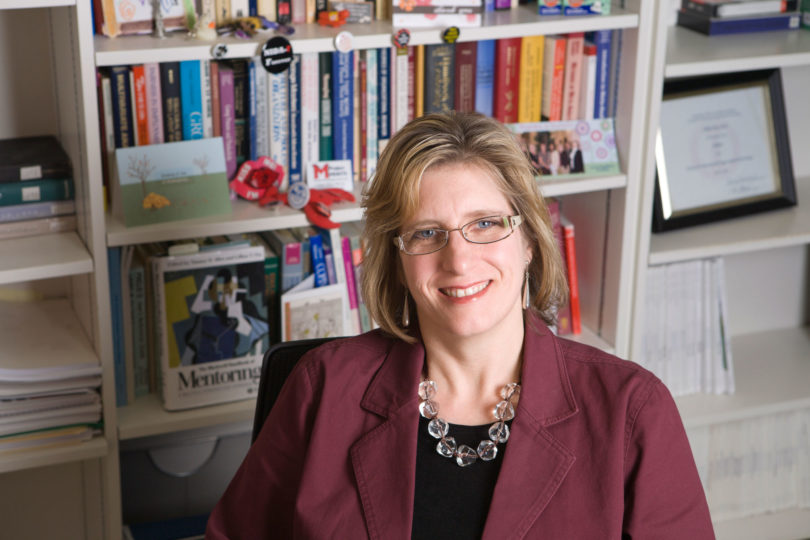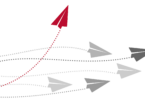Athens, Ga. – Lillian Eby, University of Georgia professor of psychology, has been appointed director of UGA’s William A. and Barbara R. Owens Institute for Behavioral Research. She succeeds Stephen Beach, Distinguished Research Professor in the university’s clinical psychology program, who has served as the institute’s director since 2003. Eby’s appointment is effective in August.
The Owens Institute, a unit of the UGA Office of the Vice President for Research, fosters interdisciplinary research that addresses some of society’s most pressing needs, including health, family, education, culture and conservation.
“The search committee was looking for someone who would have outstanding leadership skills, excellent organizational abilities and be able to continue the impact of the Owens Institute at the University of Georgia and beyond,” said Gene Brody, Regents Professor of Child and Family Development and director of the Center for Family Research, who chaired the search committee. “In Dr. Eby, we found someone who met and surpassed our expectations.”
David Lee, UGA vice president for research, said, “We look forward to Dr. Eby providing vibrant leadership for the institute, as it is critically important in elevating our behavioral sciences to yet another level. The programs nurtured by the Owens Institute not only attract some of UGA’s largest grant awards on a consistent basis but also make a positive difference in the lives of many individuals in Georgia and elsewhere.”
The Owens Institute includes six centers: the Center for Family Research; the Center for Research on Behavioral Health and Human Services Delivery; the Center for Gambling Research; the Center for Integrative Conservation Research; the Center for the Study of Gene-Social Environment Transactions; and the Center for Contextual Genetics and Prevention Science. It also includes work groups in developing areas of basic social and behavioral science research, including neuroscience behavior; race, class and place outcomes; behavioral economics and neuroscience; and violence.
The Owens Institute also aims to enhance the quality, comprehensiveness and relevance of social and behavioral research at UGA. More than 45 faculty members from six schools and colleges across campus are institute fellows, with many more affiliated as mentoring fellows or as members of its working groups and centers.
Eby, who has been a Franklin College of Arts and Sciences faculty member in the department of psychology since 1996, received her B.A. in psychology from Western Michigan University in 1986, and her Ph.D. in industrial/organizational psychology from the University of Tennessee in 1996.
She is known for her groundbreaking research on mentoring in the workplace. Her conclusions have proved transformational in the field of psychology. Her recommendations for mentoring programs are applied to help ensure high-quality workplace relationships in a variety of settings, including health care and substance abuse treatment centers. She is also recognized for her contributions to the field of occupational health and the impact of large-scale organizational change on employee well-being, attitudes and behavior at work.
A fellow of the American Psychological Association and the Society for Industrial and Organizational Psychology, Eby is the recipient of numerous professional awards for her research. The University of Georgia Research Foundation Inc. awarded her the Creative Research Medal in 2009 and the William A. Owens Creative Research Award in 2013. Recognition for her mentoring and teaching includes the Richard L. Marsh Outstanding Faculty Mentoring award from the department of psychology in 2011, the Mentoring Legacy Award from the Academy of Management in 2008, and the Graduate Teaching Award for Teaching Excellence from the UGA department of psychology, 2005-2006.
Eby said her goals for the Owens Institute include increasing the visibility of social and behavioral sciences at UGA, recruiting scientists of national stature and fostering more interdisciplinary collaborations between social and behavioral scientists and bench scientists. In addition, she said, “I want to continue to enhance our successful mentoring program, including developing programs for mid-career faculty.”
The Owens Institute was named in honor of its founding director, William A. Owens, and his wife, Barbara, in 2011. A $1 million endowment fosters the collaborative research and tradition of student support and faculty mentoring, which were Owens’ hallmarks. For more information about the Owens Institute, see www.ibr.uga.edu.








